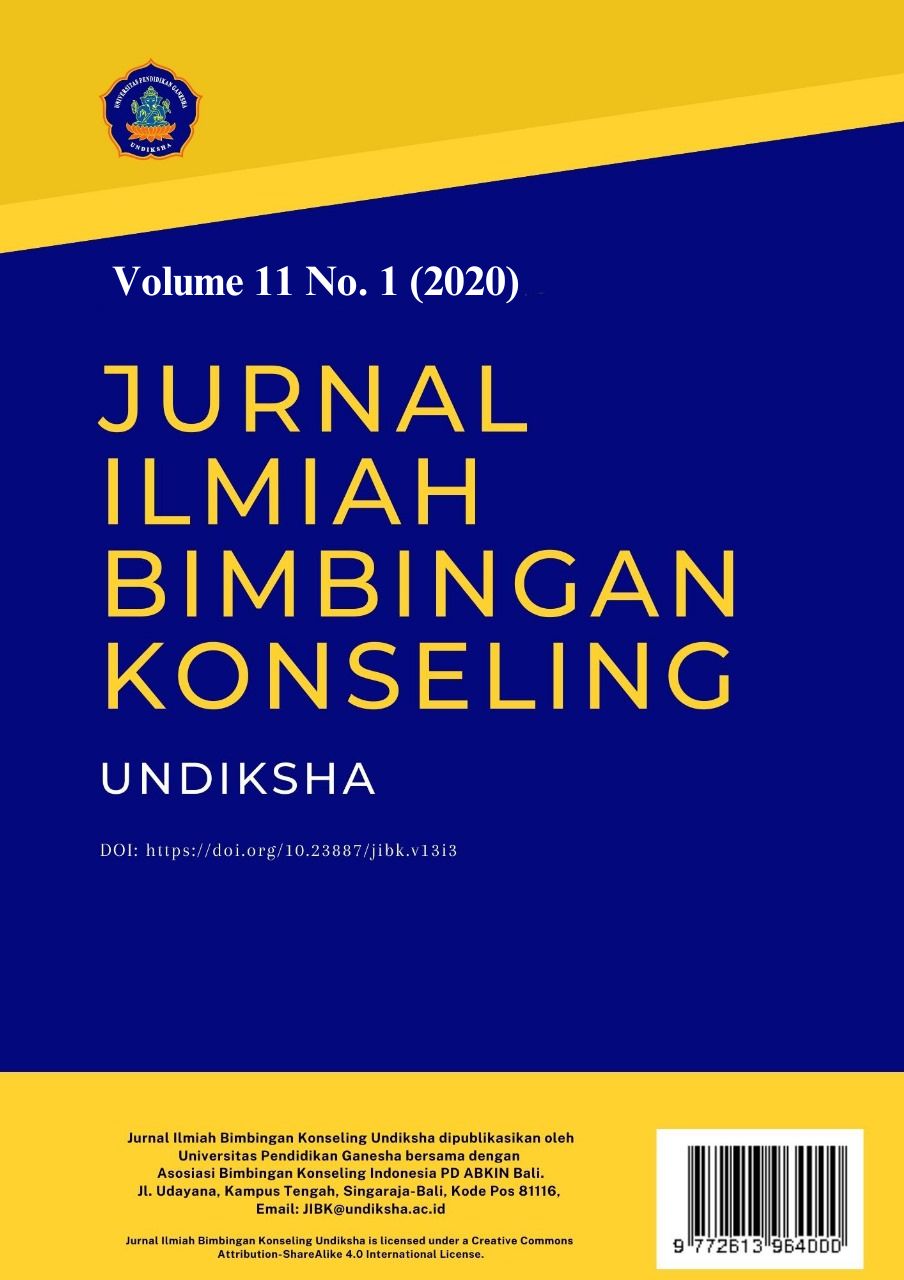Kontribusi Happenstance Learning Theory terhadap Perencanaan Karier Siswa
DOI:
https://doi.org/10.23887/jjbk.v11i1.27356Abstract
Careers are one of the areas of counseling and counselling services. Career is an important factor in life because it has an impact on the overall welfare of the individual. Happenstance Learning Theory (HLT) is an effort to explain how and why individuals follow their different ways throughout life and to illustrate how counselors can facilitate that process. The research methods used are literature studies. Researchers dig into information through the Google Schoolar search page, DOAJ (Directory Open Acces Journal), Sage Journal, Taylor & Francis, Wiley Online Library, and link Springer to find traces of past research related to literacy skills. Through research, it is expected to know the progress of research that has been conducted on the perspective of Happenstance Learning Theory (HLT) perspectives. Thus, Happenstance Learning Theory (HLT) helps students plan their career.
Downloads
Published
Issue
Section
License
Jurnal Ilmiah Bimbingan Konseling Undiksha is an Open Access Journal. The authors who publish the manuscript in this journal agree to the following terms:
JIBK is licensed under a Creative Commons Attribution 4.0 International License. This permits anyone to copy, redistribute, remix, transmit and adapt the work provided the original work and source is appropriately cited.
This means:
Jurnal Ilmiah Bimbingan Konseling is licensed under a Creative Commons Attribution 4.0 International License.
(1) Under the CC-BY license, authors retain ownership of the copyright for their article, but authors grant others permission to use the content of publications in JIBK in whole or in part provided that the original work is properly cited. Users (redistributors) of JIBK are required to cite the original source, including the author's names, JIBK as the initial source of publication, year of publication, volume number, issue, and Digital Object Identifier (DOI); (2) The authors are the copyright owner of the article, and the author grants the JIBK held the first publication right.









.png)

.jpg)
